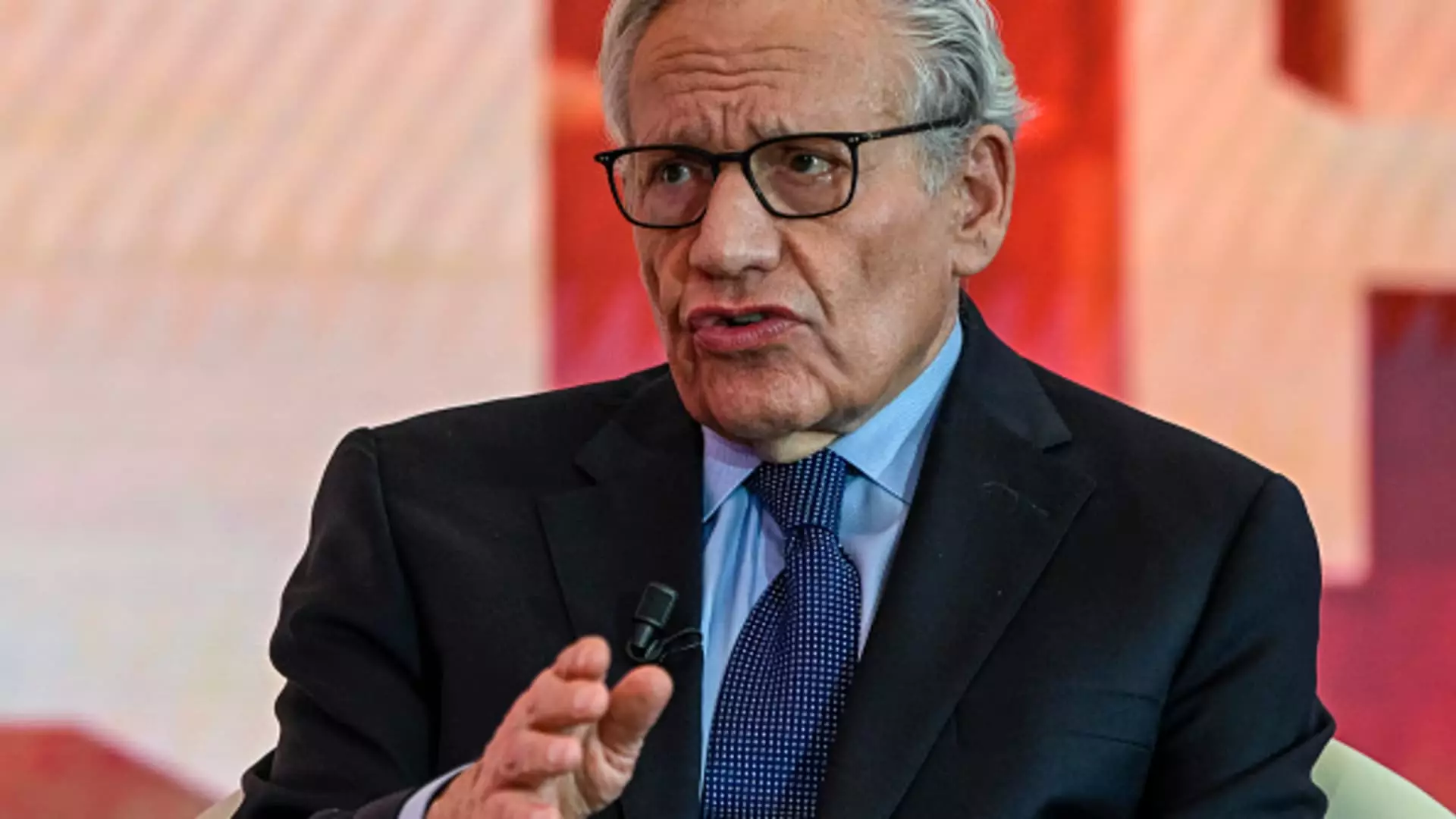In an era where political power is often weaponized through the courts, Donald Trump’s recent attempt to sue Bob Woodward exposes more about his fragile ego than about any legitimate legal grievance. Framing his claims around copyright infringement and unauthorized use of interview tapes, Trump inadvertently highlights a core weakness: his perception of authority is boundless but flimsy when challenged. His legal fight is fundamentally rooted in a desperate desire to control the narrative—a desire that the judicial system simply cannot accommodate in a functioning democracy.
When a former president attempts to assert ownership over interviews conducted as part of journalistic practices, it underscores an alarming tendency to view information and professional speech as personal assets. Such a stance undermines the very foundations of free press and democratic accountability. No matter how much Trump tries to frame the dispute as a matter of intellectual property, it rapidly reveals itself as a struggle for dominance over facts and storytelling. Legal actions rooted in ego often serve only to diminish the credibility of the individual pursuing them, and Trump’s lawsuit is no exception.
The Judicial Rejection as a Reflection of Democratic Resilience
Judge Paul Gardephe’s dismissal of Trump’s nearly $50 million suit reflects a judiciary committed to resisting authoritarian tendencies and protecting the independence of journalism. By ruling that Trump could not plausibly claim joint authorship or copyright interests in the interviews, the court reinforced a clear boundary: public figures cannot unilaterally claim ownership over the content generated by their public service roles. This decision anchors the principle that journalism, especially in the context of political figures, must remain free from personal claims of proprietary rights—lest the press be silenced or censored by individuals wielding political power.
This ruling sends a reassuring message that the rule of law remains resilient, capable of pushing back against attempts to weaponize legal systems for personal vengeance. Trump’s legal maneuvering appears increasingly disconnected from reality, as it reflects an authoritarian impulse to control information that does not belong to him. The courts’ refusal to entertain his claims upholds the essential importance of an independent press, safeguarding the public’s right to truthful information—a cornerstone of democratic governance.
The Cost of Legal Vanity and the Future of Political Discourse
Trump’s pursuit of a multi-million dollar damages claim based on projected audiobooks sales also exposes the vacuous nature of his legal strategy. It’s a spectacle of overreach, symbolizing a mindset that equates financial gain with political influence. The exaggerated damages claim, aimed at punishing journalistic inquiry, underscores his persistent belief that confrontation and control are the only pathways to regain dominance. This approach is inherently misguided; it clouds the critical issue—public accountability—and shifts focus from substantive discourse to financial and legal spectacle.
Moreover, the case illustrates how the politicization of the judiciary can sometimes be superficial and prone to manipulation. While Trump invokes claims of bias, the court’s decision demonstrates that adherence to the law can serve as a bulwark against unchecked executive overreach, regardless of political affiliation. This outcome affirms that, despite the tumult of American politics, the legal system can function as a safeguard against authoritarian behavior—though only if individuals like Trump recognize its boundaries and accept accountability.
The Broader Implication for a Fragile Democracy
Trump’s legal campaign, culminating in this defeat, raises serious concerns about the health of American democracy. His relentless quest to silence critical journalism and control the narrative reveals a fragile ego desperate to insulate himself from scrutiny. When personal vanity overrides the foundational principles of transparency and accountability, democracy suffers. This case becomes a cautionary tale: abuse of legal processes for personal validation threatens the integrity of institutions meant to serve the public interest.
What is most revealing is Trump’s vocal claim that his rights were dismissed without “due process,” a position that is fundamentally at odds with the realities of judicial independence. His rhetoric frames the court’s decision as biased—a typical tactic of those seeking to undermine legitimacy when losing, rather than accepting the merit of the rule of law. Democracy requires a resilient judiciary that refuses to be swayed by personal or political pressures, and this case underscores that vital necessity.
In pondering this legal spectacle, it becomes clear that the true battleground is not just whether Trump can control the narrative, but whether American institutions are strong enough to withstand such egocentric assaults. The ruling serves as a reminder that the legal system’s resilience hinges on its capacity to prioritize justice over power claims, a principle that must be fiercely defended in the turbulent landscape of American politics.


Leave a Reply